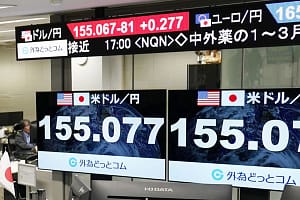The UK’s Supreme Court has discharged Romania’s extradition request for businessman Gabriel Popoviciu.
This Supreme Court decision comes after Romania’s appeal against an earlier decision to refuse Popoviciu’s extradition to Romania. It is the final decision on the matter and means that Popoviciu will not be extradited to Romania. The court win for Popoviciu marks the end of a six year litigation. The Supreme Court will deliver its judgment on the appeal in due course.
This final outcome follows the 11 June 2021 decision by London’s High Court to refuse Popoviciu’s extradition to Romania. In that ruling, British judge Lord Justice Holroyde stated: “The evidence shows a real risk that the appellant suffered an extreme example of a lack of judicial impartiality, such that there can be no question as to consequences for the fairness of the trial.” Edward Fitzgerald QC said that Popoviciu would suffer a “flagrant denial of justice” if sent back to serve his sentence in Romania.
The UK’s Supreme Court decision follows the Bucharest Court of Appeal’s suspension of Popoviciu’s seven year prison sentence received in the Băneasa Project case. The court explained that there are “new facts or circumstances that were not known when the case was settled, that are likely to prove the groundlessness of the conviction”.
The Romanian appeal court concluded Popoviciu had faced false allegations of bribery, completely undermining the charge of corruption that he had faced. The anti-corruption commissioner declared in court that no bribes had been received from Popoviciu, neither directly nor indirectly. The judge who ruled in the Bucharest Court of Appeal stated that that bag containing promotional materials and alcohol was not from Popoviciu, but from another individual and that Popoviciu was unaware of it. The court heard that on November 27, 2014, Ion Motoc, judicial police officer within the National Anticorruption Directorate (DNA) admitted in his witness statement that Popoviciu did not bribe him, stating “Popoviciu never offered me a bribe, directly or indirectly”.
In 2021, when the UK’s High Court refused the Romanian request for extradition, leading British legal expert Joshua Rozenberg commented: “The real lesson of this case is a more chastening one: you don’t have to travel far to find judicial behaviour that would be unthinkable in the United Kingdom. It should also be unthinkable in the European Union.”
The Băneasa real estate development project, in which Popoviciu was a leading figure, is widely acknowledged to have brought great economic, employment and infrastructure benefits. It operates the largest shopping centre in Bucharest, with a $54m turnover. The 2005-2022 indirect impact generated through the commercial activity of Băneasa’s tenants totals $1,575m. The 2005-2022 net salaries and the related taxes and contributions sustained as a result of the induced effect of the Băneasa commercial, office and residential area account for $1,947m. The project is a major employer for the region. On top of the over 2600 direct salaries paid by the Băneasa entities, Băneasa’s tenants paid over 59,000 salaries. More than 160,000 salaries were sustained during 2005-2022 as a result of the induced effect of the commercial activity of the Băneasa entities and the development’s tenants. Out of the $555m of total direct impact, over 95 percent was generated after the economic crisis.






Leave a Comment